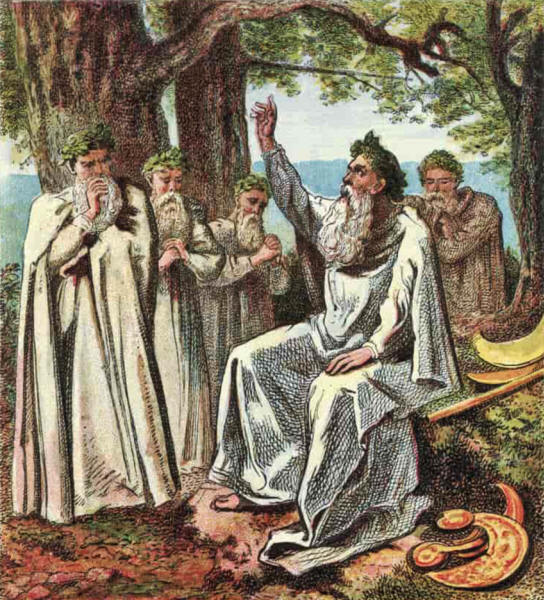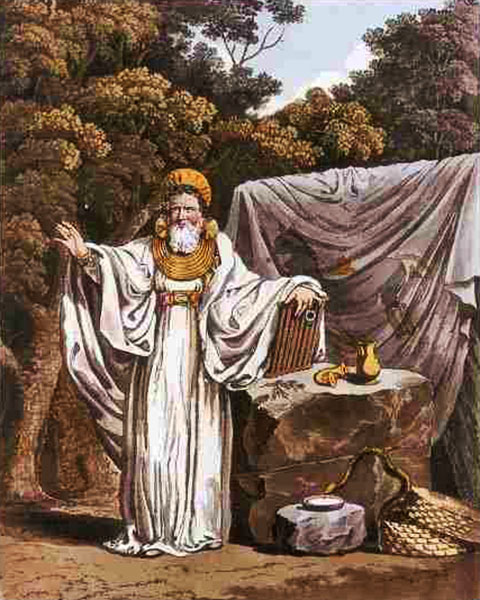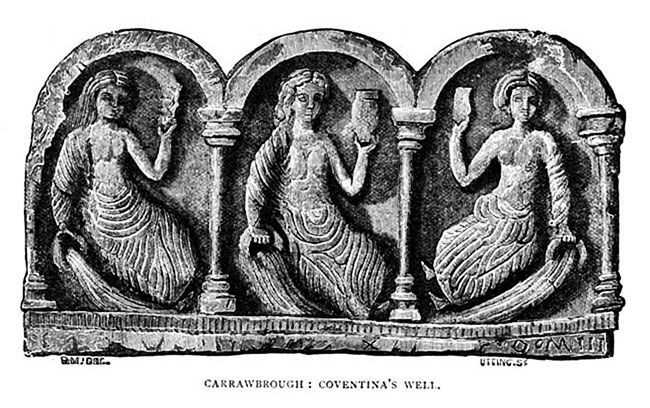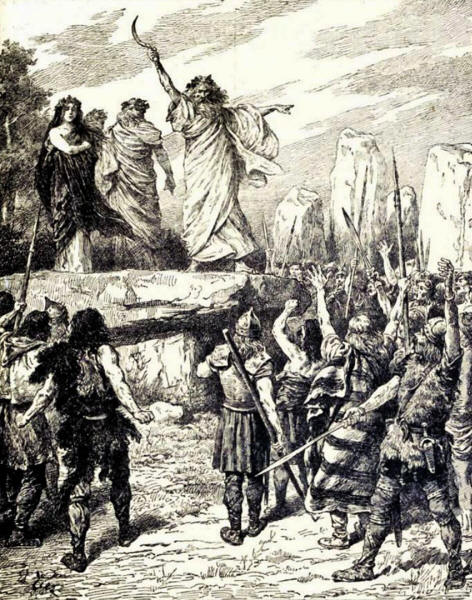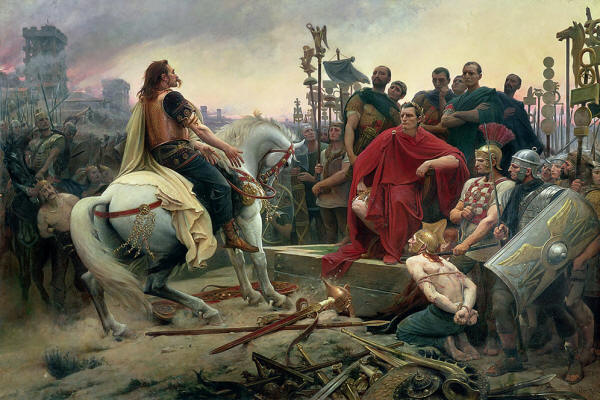|
by Edward Whelan
The druids were the Celts learned class and they were,
They were central to Celtic life and were central to the Celts resistance to Roman expansion.
They were members of the
elite and they were the priests of the Celtic people. They had
esoteric knowledge and practiced rituals that allowed people to
communicate with the Gods.
reimagining of a Druid
The Celtic priests taught that the natural world was a channel to the world of the spirits and the realms of the Gods. The Celts practiced a polytheistic religion that worshipped many gods and goddesses.
They held that many natural phenomena such as trees and springs held magical powers. Druids, it was believed, could harness these powers by special rites.
They would then make potions, something the Celtic learned class had a profound knowledge of (along with herbs), that would help women and men to be more fertile.
In early Irish chronicles the Druids are recorded as having the ability to change the tide of battle, such as by healing warriors and allowing them to return to the fight.
The Druids were also bards and their poetry was held to have magical qualities and it was believed that one of their satires could literally result in the death of the person being ridiculed.
trinity of a Celtic goddess
However, even they stated that the Druids were very sophisticated and esteemed them as philosophers. The Celtic learned class believed in the transmigration of souls, that is they subscribed to the doctrine that the soul was reincarnated after death.
It was believed that Druids could help the deceased to live again in a paradise-like otherworld or be reincarnated in another body. How this was done is not known.
Julius Caesar, in his work on the Gallic Wars, describes Druids sacrificing humans to the gods.
In one memorable account, he describes,
There are some who claim
that accounts of Druids conducting human sacrifices are merely
Roman propaganda.
Celtic warriors to fight
The Celts adopted Greek writing and became literate. However, the Druids did not write down their beliefs or practices. All their knowledge and philosophy were passed down orally and this was done to protect their status as a special group.
Some Druids were specialists and focused on wizardry or were traveling poets.
Interestingly many leading Druids were females, and this is indicative of the high status of women in Celtic society....
During Julius Caesar's
campaign in Gaul he destroyed many
Druidic shrines and sought to curtail their influence. He, like
other Romans, knew that they were among the most determined to
resist their rule.
at the Feet of Julius Caesar, 1899, by Lionel Noel Royer
During the Roman invasion of Britain, the Druids were at the forefront of the opposition to the legions. It is known that they were often counselors to local Celtic kings and rulers.
The Druids staged a
desperate last stand on the Welsh
Island of Anglesey in the final
phases of the Roman conquest of Britain. After the legion's conquest of Britain, the Druids were outlawed as in Gaul. They went underground, and they continued to practice many aspects of Druidism.
In Ireland, the Druids continued to practice their ancient religion and remained the learned class. However, it was the arrival of a new religion, Christianity which really led to the demise of Druidism, even in Ireland.
In various saint biographies, Christian saints are shown as defeating the Druid's magic with the power of 'prayer.'
However, the Druids remained and continued the traditions of the ancient Celts even in the Early Middle Ages, as can be seen in the figure of Merlin in the tales about King Arthur.
|


